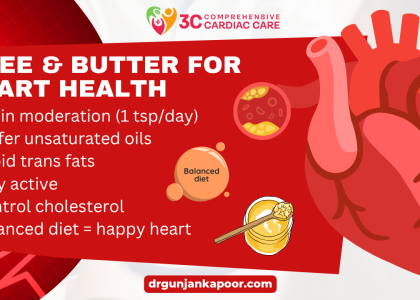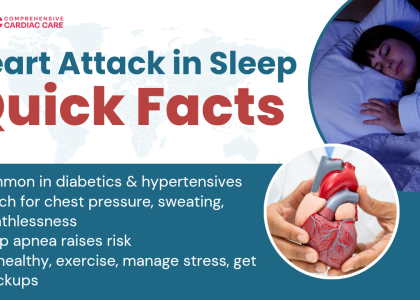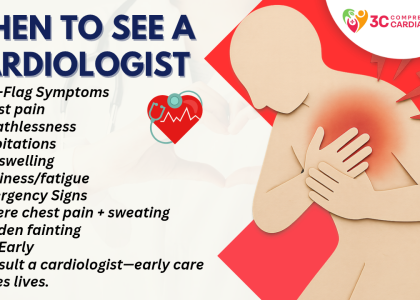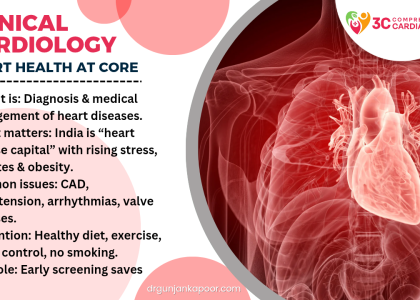AI in Cardiology: How Technology Is Changing Heart Care
The human heart has always been a symbol of life—but now, it’s becoming a powerful frontier for artificial intelligence (AI) to revolutionize healthcare. In 2025, cardiology is undergoing a transformation powered by machine learning, big data, and predictive algorithms.
For tech lovers and health enthusiasts alike, AI is bringing us closer to personalized, predictive, and preventive heart care. Let’s explore how AI is reshaping the future of your heart. ⚙️
1. Early Detection: Finding Heart Problems Before They Happen
One of AI’s greatest strengths lies in pattern recognition. In cardiology, this means AI can analyze ECGs, MRIs, CT scans, and even wearables to detect early signs of heart disease—sometimes before symptoms appear. ️♂️❤️
⚡ Real-world examples:
AI-enhanced ECGs detect atrial fibrillation, even in asymptomatic patients
Machine learning models predict heart attack risk with more precision than traditional scoring systems
AI + imaging helps detect valve diseases and heart failure signs earlier than ever
No longer are we waiting for chest pain to act—AI helps doctors intervene before the emergency hits.
2. Personalized Treatment Plans: One Size No Longer Fits All
AI doesn’t just collect data—it understands you. With access to patient history, genetics, imaging results, lifestyle data, and even wearable metrics, AI systems can create individualized treatment plans tailored to your body and lifestyle.
Benefits of AI-guided personalization:
Pinpoints the best medications for YOUR biology
Adjusts dosages dynamically using real-time data
Recommends lifestyle changes based on stress, sleep, and activity tracking ♂️
With AI, cardiology is shifting from reaction to real-time optimization, empowering both doctors and patients.
⌚ 3. Smart Wearables: Your Heart’s Personal AI Guardian
From smartwatches to biosensors, AI-powered wearables are becoming always-on heart monitors. ⌚❤️
Today’s wearables can:
Detect irregular heartbeats and alert users instantly
Track blood pressure, oxygen saturation, and heart rate variability (HRV)
Integrate with healthcare systems to send alerts to doctors during abnormal readings
The data these devices collect feeds directly into AI platforms that spot trends and flag concerns before you feel a thing. It’s like having a cardiologist on your wrist 24/7.
4. AI-Assisted Imaging: Clearer Views, Faster Diagnoses
Medical imaging is the beating heart of diagnostics, and now AI is making it smarter and faster. ️
AI in cardiac imaging:
Speeds up MRI/CT scan interpretation by up to 10x
Identifies blockages, aneurysms, and defects with extreme accuracy
Highlights subtle anomalies human eyes might miss
Cardiologists now rely on AI to guide decisions, reduce human error, and spot problems earlier—often within minutes instead of days.
⚙️ 5. Predictive Analytics: Seeing the Future of Heart Health
Imagine a system that warns your doctor that you’re 10 days away from a potential cardiac event, even if you feel fine. That’s no longer science fiction—it’s predictive AI.
What AI can predict:
Upcoming heart failure decompensation
Sudden arrhythmias or cardiac arrests
Need for medication adjustments before symptoms worsen
These tools give physicians a strategic advantage, helping prevent hospitalizations and even saving lives.
6. Smarter Clinical Workflows: AI Behind the Scenes
AI doesn’t just help patients—it’s also changing how cardiologists work. ⚕️
Automates chart reviews and summarizes patient histories
Flags urgent cases in triage systems
Helps doctors prioritize patients more efficiently
By handling data-heavy tasks, AI gives cardiologists more time for what matters most: human connection and decision-making.
The Road Ahead: Where AI in Cardiology Is Going
As we look beyond 2025, the fusion of AI, robotics, and genomics will unlock even greater possibilities:
AI stethoscopes that detect murmurs during home check-ups
Chatbots that answer heart health questions using medical databases ️
Digital twins of your heart for simulations before surgeries or treatments ♂️
And with ongoing research, expect even more real-time, proactive, and ultra-personalized cardiology in the coming years.
Final Thought
Artificial intelligence is not replacing your cardiologist—it’s making them a superhero. ♂️ By handling the complex, data-heavy side of heart care, AI is allowing doctors to do what they do best: connect, listen, and heal.
For tech-savvy readers, the future of cardiology isn’t just smart—it’s life-saving. And the heart of that future beats with AI.









